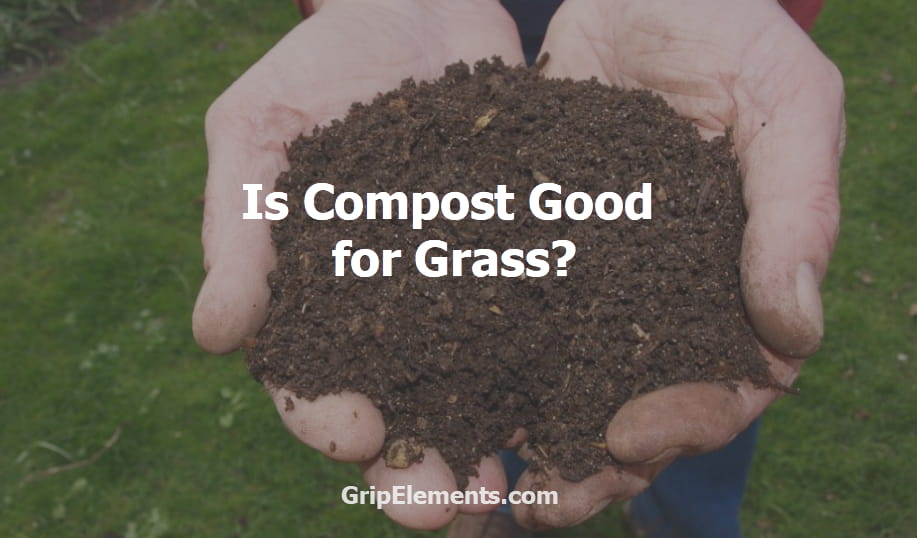Is compost good for grass? Maintaining a perfectly maintained lawn is quite pleasant. The best lawns can transform into year-round “outdoor rooms” in their own right.
So, what part does compost play in maintaining the health of your gardens? Compost is particularly beneficial for grass and has several advantages, such as enhancing grass root health, enriching topsoil with nutrients, and preventing thatch, weeds, and illnesses. It is both an organic fertilizer and a natural weed killer.
Is compost good for grass? So let’s examine the advantages of compost for grass in more detail.
Compost is beneficial for lawns as well as flowerbeds and the environment.
Everyone enjoys composting. Compost sprinkled on your lawn is referred to as “top-dressing,” while compost soaked in water is called “compost tea.”
Eggshells, vegetable peels, grass clippings, and other decomposing items are all mixed to make compost. The compost contains bacteria and nutrients. Worms and insects make good compost bright and airy. In your soil, compost builds a healthy food web.
Compost is good for your grass’s roots
Your grass roots will survive the winter and emerge healthier in the spring with the aid of grassroots compost.
Water containing vital nutrients (nitrogen, potassium, and phosphorus) won’t remain in the soil for long enough for roots to absorb them if your grass has an unhealthy root system or a root system that is too thin.
Compost Gives Nutrients for Soil
Compost aids soil in retaining nutrients. In your yard, compost gives the food web more life.
Your soil will become better thanks to soil compost. Compost-amended soil can hold up to 30% more water than unamended soil.
An airy combination of broken-down particles is compost. Clayey, hard soil tends to compress, allowing water to run away before plants can use it.
Your grass will suffer if you find it difficult to dig in your soil. Clay soil loses some of its density and hardness when compost is added.
Water and any other fertilizer simply flow off sandy soil. By adding compost to sandy soil, moisture retention is improved.
Compost that has decomposed will balance out any soil’s acidity or alkalinity. The neutralization process improves nitrogen absorption by grassroots.
Compost will combat thatch
Compost combats thatch, which harms your lawn. A root system that is too thick prevents those nutrients from reaching the roots, much like one that is too thin.
Lawns with a lot of thatch will deteriorate and die. Microorganisms in compost help to restore a healthy root system and lessen thatch.
[su_note note_color=”#feedf7″]Read also: How To Grow And Maintain Healthy Grass Lawn[/su_note]
Compost Contains More Microorganisms
Even though you might not think so, you do desire a lawn covered with little creepy crawlies. Compost is bursting with beneficial microbes for your lawn.
Small soil particles are successfully bound by microorganisms into larger ones that are less prone to wash off onto your lawn. Additionally, the binding leaves the soil with wholesome spaces.
In the end, adding compost sparingly might be very beneficial for your grass. It enriches the soil with a mixture of nutrients your lawn will enjoy.
Therefore, if you have thinning patches on your lawn, adding around 1/4 inch of compost will assist improve soil quality and aid in strengthening your grassroots, making the rest of your lawn lusher and healthier. Is compost good for grass? Yes, it is.
